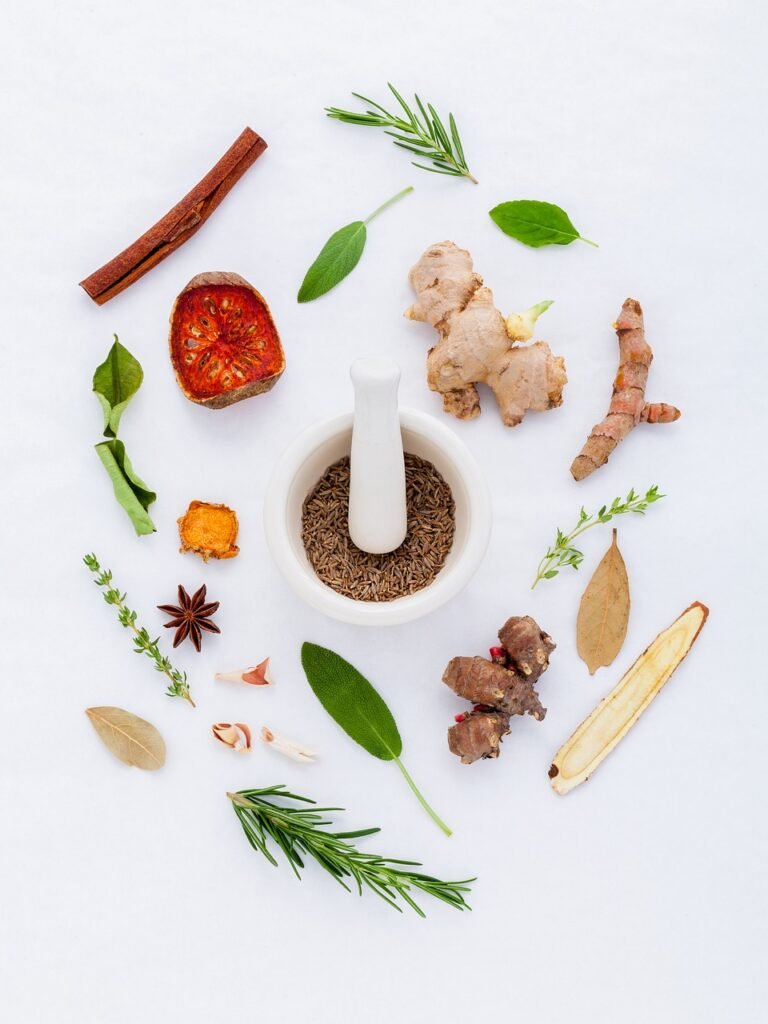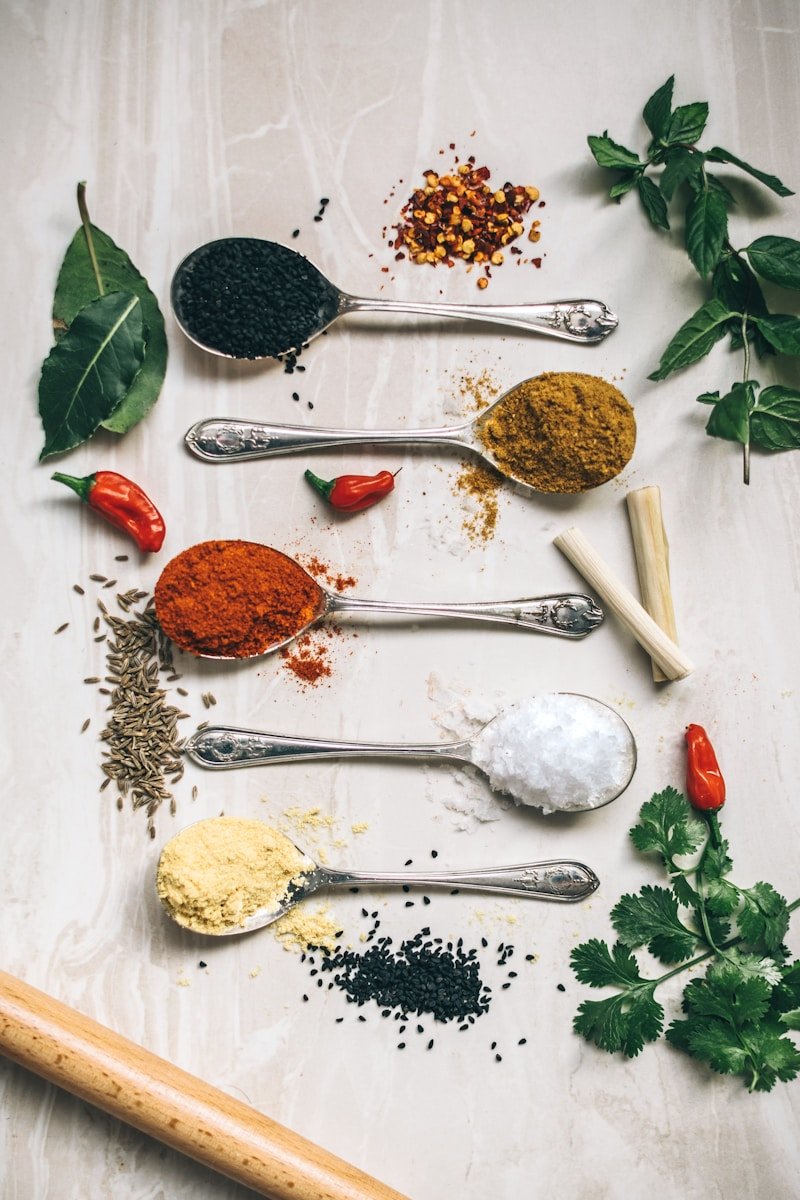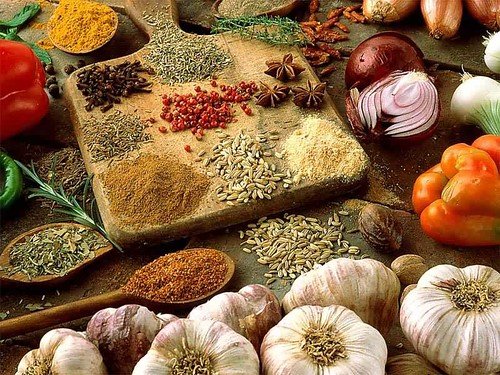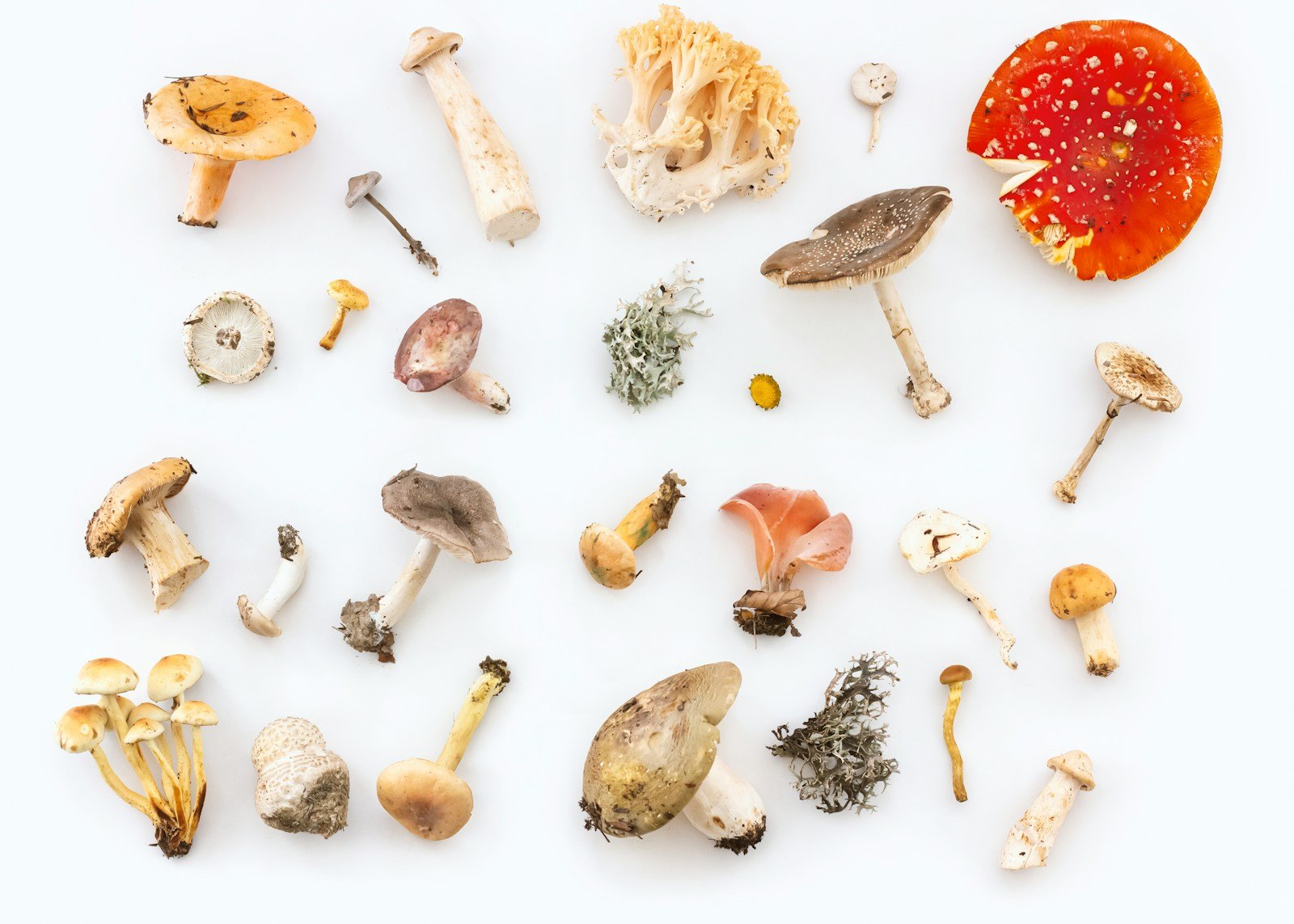In our modern world brimming with cutting-edge medical advancements, it’s easy to overlook the profound wisdom ingrained in ancient healing practices. Among these time-honored traditions, herbal therapy is a testament to humanity’s enduring connection with nature’s restorative bounty. From the lush rainforests of the Amazon to the sprawling deserts of the Middle East, diverse cultures have harnessed the potent properties of plants, weaving them into intricate systems of holistic healing.
As we embark on this journey through the captivating realm of herbal therapy, we invite you to embrace an open mind and a curious spirit. Prepare to unravel the mysteries that have intrigued humankind for millennia, uncovering the remarkable synergy between the botanical world and our well-being.

The Origins of Herbal Therapy
The practice of harnessing plants for medicinal purposes is as ancient as human civilization itself. Archaeological evidence suggests that our ancestors recognized the curative potential of certain flora as early as the Paleolithic era, approximately 60,000 years ago. From the Sumerians’ meticulously compiled plant lists to the intricate hieroglyphs adorning ancient Egyptian tombs, the reverence for herbal remedies permeated diverse cultures across the globe.
One of the earliest known herbals, the “Ebers Papyrus,” dating back to 1550 BCE, cataloged over 700 plant-based formulations, laying the foundation for the rich tradition of Egyptian medicine. The ancient Greeks, too, made significant contributions, with luminaries like Theophrastus and Dioscorides documenting their observations on the therapeutic properties of various herbs.
As civilizations flourished, the wisdom of herbal therapy continued to evolve and spread. In China, the revered “Huangdi Neijing” (The Yellow Emperor’s Classic of Internal Medicine) referenced over 200 plant-derived compounds, while the Indian Vedas extolled the virtues of botanical treatments for many ailments.

The Resurgence of Herbal Therapy
While the rise of modern medicine temporarily overshadowed the role of herbal remedies, a renewed appreciation for these age-old practices has emerged in recent decades. Driven by a growing disillusionment with the side effects and costs associated with conventional pharmaceuticals, individuals worldwide are turning to nature’s apothecary for holistic solutions.
The World Health Organization (WHO) estimates that approximately 80% of the global population relies on herbal medicine for their primary healthcare needs, underscoring the enduring relevance of this ancient art. In countries like Germany, where up to 70% of physicians prescribe plant-based medicines, the integration of herbal therapies into mainstream healthcare is a testament to their efficacy and cultural acceptance.
The Botanical Bounty: A Glimpse into Nature’s Pharmacy
Nature’s bounty offers an astounding array of plants with remarkable therapeutic properties. From the vibrant petals of the echinacea flower to the pungent roots of ginger, each botanical specimen holds the potential to alleviate ailments and promote overall well-being. Let’s explore a few of these herbal wonders:
Echinacea
Revered by Native American groups for its healing virtues, echinacea, or the purple coneflower, has long been celebrated for its immune-boosting abilities. While scientific evidence is still emerging, some studies suggest that this resilient herb may reduce the risk of contracting the common cold by up to 20%.
Ginseng
Steeped in the traditions of Chinese medicine, ginseng is a revered adaptogen believed to enhance overall vitality and resilience. Though human research is limited, preliminary studies hint at its potential to support cognitive function, regulate blood sugar levels, and bolster the body’s defenses against stress and illness.
St. John’s Wort
With a history dating back to ancient Greece, St. John’s Wort has garnered recognition as a natural ally in managing mild to moderate depression. While its efficacy is still under investigation, some studies suggest that this sunny-hued herb may rival conventional antidepressants, albeit with a gentler side effect profile.
Turmeric
Renowned for its vibrant hue and pungent flavor, turmeric has long been cherished in Ayurvedic medicine for its potent anti-inflammatory properties. Modern research has validated its potential in alleviating arthritic pain, with some studies indicating comparable efficacy to common over-the-counter medications like ibuprofen.

The Synergy of Tradition and Science
While the wisdom of herbal therapy is deeply rooted in ancestral practices, modern scientific inquiry has shed new light on the intricate mechanisms that underlie these natural remedies. Through rigorous research, scientists are unlocking the secrets of plant compounds, unveiling their potential to modulate biochemical pathways and influence various physiological processes.
One notable example is artemisinin, a potent antimalarial compound derived from the sweet wormwood plant (Artemisia annua). This groundbreaking discovery, which earned its researchers the Nobel Prize in Physiology or Medicine, exemplifies the profound impact that can arise from the harmonious interplay between traditional knowledge and cutting-edge science.
Regulatory Landscape and Quality Assurance
As the popularity of herbal therapy continues to soar, ensuring the safety, efficacy, and quality of these natural remedies has become a paramount concern. Regulatory bodies worldwide have taken steps to establish guidelines and standards for the manufacturing and labeling of herbal products.
In the European Union, for instance, the Committee on Herbal Medicinal Products oversees the regulation of herbal medicines, ensuring adherence to stringent quality and safety protocols. Similarly, the United States Food and Drug Administration (FDA) has implemented current Good Manufacturing Practices (cGMP) for dietary supplements, including herbal products.
However, it is crucial to note that the regulatory landscape for herbal remedies can vary significantly across different regions and countries. While some jurisdictions have implemented robust frameworks, others may lack comprehensive oversight, potentially exposing consumers to substandard or adulterated products.
Choosing Quality Herbal Supplements
In the realm of herbal therapy, not all products are created equal. Ensuring the quality and purity of the supplements you choose is paramount to maximizing their potential benefits and minimizing possible risks. Here are some essential considerations when selecting herbal products:
- Third-Party Certification: Opt for brands that have been independently tested and certified by reputable organizations like the U.S. Pharmacopeia (USP) or NSF International. These certifications ensure that the product meets stringent quality and purity standards.
- Reputable Manufacturers: Research the company behind the product and prioritize those with a proven track record of adhering to industry best practices and transparency in their manufacturing processes.
- Ingredient Transparency: Carefully scrutinize the product label, ensuring that all ingredients are listed and free from potential contaminants or undisclosed additives.
- Standardization: Look for products labeled as “standardized,” which indicates that the active compound(s) have been quantified and consistently maintained across batches, ensuring reliable potency and efficacy.
- Professional Guidance: Consult with healthcare professionals, such as licensed herbalists, naturopathic physicians, or pharmacists, who possess the expertise to recommend appropriate products and dosages tailored to your specific needs and health conditions.
By exercising due diligence in your selection process, you can navigate the herbal supplement market with confidence, maximizing the potential benefits while minimizing potential risks.

Integrating Herbal Therapy into Your Wellness Journey
Incorporating herbal therapy into your wellness routine can be a transformative experience, but it’s essential to approach this journey with caution and guidance. Here are some practical tips to help you embark on this path safely and effectively:
- Consult with Professionals: Before introducing any new herbal supplements or remedies, consult with your healthcare provider, particularly if you have pre-existing medical conditions or are taking prescription medications. Herbal remedies can interact with conventional drugs, potentially altering their efficacy or causing adverse reactions.
- Start Slowly: Begin with low doses and gradually increase as needed, allowing your body to adjust to the new substances. Monitor your body’s response closely and discontinue use if you experience any adverse reactions.
- Maintain Open Communication: Keep your healthcare team informed about any herbal therapies you are using, as well as any changes in your symptoms or overall well-being. This open communication ensures that your treatment plan remains comprehensive and coordinated.
- Embrace a Holistic Approach: While herbal remedies can be powerful allies, true wellness often requires a multifaceted approach. Incorporate lifestyle modifications, such as a balanced diet, regular exercise, stress management techniques, and adequate rest, to support your body’s innate healing mechanisms.
- Be Patient and Persistent: Herbal therapies may take time to exert their full effects, as they work in harmony with your body’s natural rhythms. Embrace patience and persistence, and trust in the time-honored wisdom that has guided these practices for millennia.
By integrating herbal therapy into your wellness journey with mindfulness and respect, you can tap into the profound healing potential of nature’s botanical treasures, embarking on a path toward holistic well-being that transcends the boundaries of conventional medicine.
The Future of Herbal Therapy: Bridging Tradition and Innovation
As we look to the future, the realm of herbal therapy stands poised to undergo a renaissance, fueled by the convergence of ancient wisdom and modern scientific innovation. Cutting-edge technologies, such as genomics, metabolomics, and computational biology, are unlocking new frontiers in our understanding of plant-based remedies, paving the way for more targeted and effective therapeutic applications.
Researchers are delving deeper into the intricate dance between plant compounds and the human body, uncovering the molecular mechanisms that underlie their therapeutic effects. This knowledge is not only shedding light on the efficacy of traditional practices but also opening doors to the development of novel, plant-inspired pharmaceuticals.
Moreover, the integration of traditional ecological knowledge and sustainable harvesting practices is ensuring the preservation of this invaluable natural heritage for generations to come. By fostering respectful collaborations with indigenous communities and embracing eco-friendly cultivation methods, we can safeguard the biodiversity that fuels the very essence of herbal therapy.
As we navigate this exciting frontier, it is essential to strike a delicate balance between innovation and reverence for tradition. By honoring the wisdom of our ancestors while embracing the power of modern science, we can unlock the full potential of herbal therapy, ushering in a new era of holistic healing that harmonizes the best of both worlds.

The Intersection of Herbal Therapy and Preventive Healthcare
In the realm of modern healthcare, the emphasis on preventive measures has gained significant traction, as individuals and communities alike recognize the profound impact of proactive approaches on overall well-being. Herbal therapy, with its rich tapestry of time-honored practices and natural remedies, holds immense potential in this domain.
Many plant-based compounds have been found to possess potent antioxidant and anti-inflammatory properties, making them valuable allies in combating the underlying causes of chronic diseases. By incorporating herbal remedies into lifestyle interventions, individuals can fortify their bodies’ defenses against a myriad of ailments, from cardiovascular disorders to metabolic imbalances.
Furthermore, the holistic nature of herbal therapy aligns seamlessly with the principles of preventive healthcare. By addressing the intricate interplay between mind, body, and spirit, these ancient practices offer a comprehensive approach to well-being, promoting balance and harmony on multiple levels.
As we strive to build a healthcare system that prioritizes prevention over reactive treatment, the integration of herbal therapy into mainstream practices holds the promise of empowering individuals to take an active role in their own health journeys. By harnessing the wisdom of nature and the insights of modern science, we can forge a path toward a future where preventive healthcare becomes the norm, and the art of herbal therapy serves as a guiding light on the road to lasting vitality.
Herbal Therapy and Mental Well-being: Nurturing the Mind-Body Connection
In our fast-paced, modern world, the pursuit of mental well-being has become a paramount concern. Stress, anxiety, and depression are pervasive challenges that can profoundly impact our quality of life and overall health. In this context, herbal therapy emerges as a powerful ally, offering natural solutions that nurture the delicate mind-body connection.
Throughout history, various cultures have recognized the profound influence of plants on our emotional and cognitive states. From the soothing properties of chamomile to the mood-enhancing effects of St. John’s Wort, these botanical allies have been revered for their ability to calm the mind and uplift the spirit.
Modern scientific research has begun to unravel the intricate mechanisms by which plant compounds interact with our neurochemistry, modulating neurotransmitter levels, reducing inflammation, and promoting a state of balance within the intricate neural networks that govern our emotional landscape.
Furthermore, the practice of herbal therapy often extends beyond the mere consumption of plant-based remedies. Many traditions incorporate mindfulness practices, such as meditation, breathwork, and ritual, which can profoundly enhance the therapeutic experience and foster a deeper connection with oneself and the natural world.
As we continue to navigate the complexities of mental well-being, the integration of herbal therapy into our self-care routines offers a holistic approach that addresses the multifaceted nature of our emotional and cognitive experiences. By embracing the wisdom of ancient practices and the insights of modern science, we can cultivate a state of harmony between mind and body, paving the way for a more balanced, fulfilling, and vibrant existence.
Herbal Therapy and Sustainable Living: Embracing Nature’s Bounty
In an era marked by a growing awareness of our impact on the planet, the principles of sustainable living have become paramount. Herbal therapy, with its deep roots in the natural world, offers a unique opportunity to align our pursuit of well-being with our commitment to environmental stewardship.
Many traditional herbal practices emphasize the importance of respecting and preserving the delicate ecosystems that nurture the plants we rely upon for healing. By embracing sustainable harvesting techniques, such as wildcrafting and ethical foraging, we can ensure that these precious botanical resources remain available for generations to come.
Moreover, the cultivation of medicinal plants can be a powerful tool in promoting biodiversity and preserving indigenous knowledge systems. By supporting small-scale, community-led initiatives that prioritize eco-friendly farming practices, we can not only secure a reliable supply of high-quality herbal remedies but also contribute to the preservation of cultural heritage and the empowerment of local communities.
As we delve deeper into the realm of herbal therapy, we are presented with a unique opportunity to rekindle our connection with the natural world. By embracing the principles of sustainable living and integrating them into our wellness practices, we can forge a path toward a future where our well-being and the health of our planet are inextricably intertwined, creating a harmonious balance that honors the wisdom of our ancestors while safeguarding the resources for generations yet to come.

Herbal Therapy and Cultural Preservation: Honoring Ancestral Wisdom
The art of herbal therapy is deeply intertwined with the rich tapestry of cultural traditions that have been woven throughout human history. Each indigenous community, from the Amazon rainforest to the vast steppes of Central Asia, has developed a unique understanding of the healing properties of the plants that thrive within their respective ecosystems.
As we explore the realm of herbal therapy, we must approach this journey with a deep sense of respect and reverence for the ancestral wisdom that has been passed down through generations. These time-honored practices are not merely relics of the past but living, breathing repositories of knowledge that have withstood the test of time.
By engaging with indigenous communities and traditional healers, we can gain invaluable insights into the intricate relationships between plants and human well-being. These custodians of ancient wisdom hold the keys to unlocking the full potential of herbal remedies, guiding us through the intricate web of interconnections that bind us to the natural world.
Moreover, the preservation of these cultural traditions is not merely an academic exercise but a vital step in safeguarding our collective heritage. As we confront the challenges of globalization and rapid environmental change, the knowledge embedded within these practices may hold the key to developing sustainable and holistic healthcare approaches tailored to the unique needs of diverse communities.
By embracing herbal therapy as a catalyst for cultural preservation, we can honor the legacies of our ancestors while paving the way for a future where the wisdom of the past is seamlessly interwoven with the innovations of the present, creating a harmonious tapestry that celebrates the rich diversity of human experience and our enduring connection to the natural world.
Conclusion
As we conclude our exploration of herbal therapy, we are left with a profound appreciation for the enduring wisdom that has guided humanity’s relationship with the plant kingdom for millennia. From the ancient civilizations that first documented the curative properties of botanicals to the modern scientific endeavors that continue to unravel their intricate mechanisms, the journey of herbal therapy is a testament to our species’ innate curiosity and reverence for the natural world.
In a world that often prioritizes technological advancements and synthetic solutions, the resurgence of herbal therapy serves as a powerful reminder of the profound healing potential that lies within the embrace of nature. By reconnecting with these age-old traditions, we not only unlock a path toward holistic well-being but also forge a deeper connection with the rhythms and cycles that sustain all life on our planet. As we navigate the complexities of the modern world, the wisdom of herbal therapy offers a beacon of hope, reminding us that true healing often lies in the simplicity of nature’s gifts.
Looking ahead, the future of herbal therapy is poised to be one of synergy and innovation. By embracing the insights of modern science and the guidance of traditional knowledge keepers, we can unlock new frontiers in developing plant-based remedies tailored to the unique needs of diverse communities. Sustainable cultivation practices, coupled with a deep respect for the cultural heritage embedded within these traditions, will ensure that the bounty of nature’s apothecary remains accessible for generations to come.
Ultimately, the true power of herbal therapy lies not only in its ability to alleviate physical ailments but also in its capacity to nurture the profound connection between our bodies, minds, and the natural world. As we embark on this journey, let us do so with open hearts and minds, embracing the wisdom of our ancestors while remaining steadfast in our commitment to innovation and progress.
For in the delicate dance between tradition and modernity, we may find the key to unlocking a future where the pursuit of well-being is inextricably intertwined with the reverence for the natural world that has sustained us since the dawn of human civilization. Herbal therapy, in all its ancient splendor and contemporary relevance, stands as a beacon of hope, guiding us toward a path of holistic healing that transcends the boundaries of time and space.
To learn more on how you can optimize your lifestyle beyond Herbs and Spices, Join us on YouTube for more tips and insights. Also, you can enjoy this related article on “ What is Ancestral Health” and feel free to leave a comment below.
DISCLAIMER:
The information provided in this article is for educational purposes only and should not be considered medical advice. Always consult with a qualified healthcare professional before making any changes to your health regimen or treatment plan.




